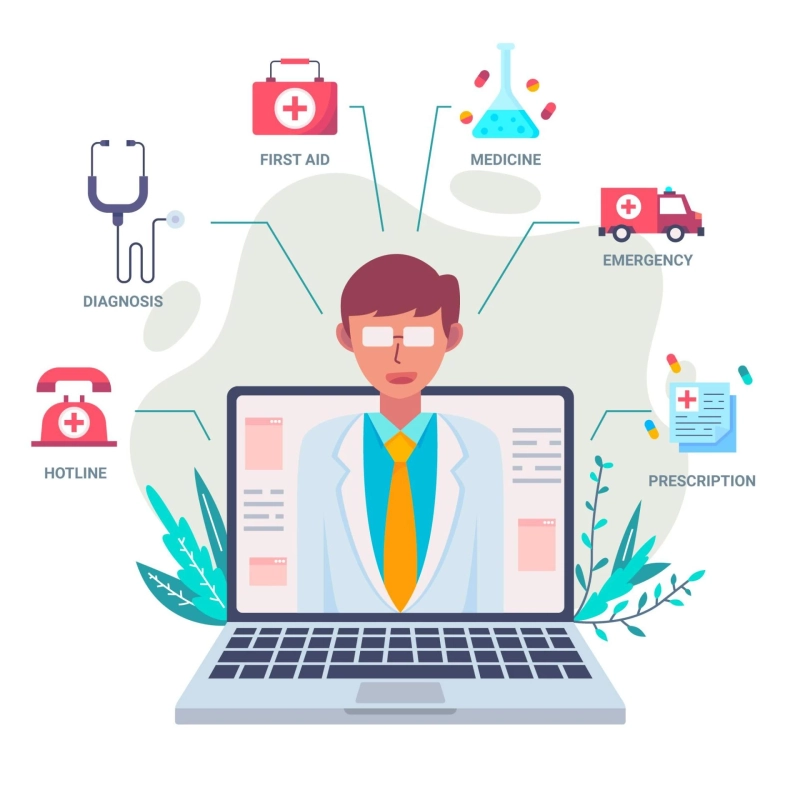Introduction
In the modern era, Information Technology (IT) solutions have become instrumental in transforming healthcare organizations and revolutionizing patient care. One of the key aspects of this transformation is healthcare software development. In this blog, we will explore the immense power of IT solutions in the form of healthcare software development and how it empowers healthcare organizations to deliver efficient, personalized, and patient-centered care.
Streamlined Workflows and Process AutomationHealthcare software development brings automation to various workflows and processes within healthcare organizations. From appointment scheduling and patient registration to billing and claims management, software solutions streamline administrative tasks, reduce manual errors, and enhance operational efficiency. By automating repetitive tasks, healthcare professionals can focus more on delivering quality care and spend less time on administrative burdens.
Electronic Health Records (EHRs) for Comprehensive Patient InformationEHRs play a vital role in healthcare software development. They enable healthcare organizations to consolidate patient information, including medical history, medications, allergies, and test results, into a secure and easily accessible digital format. EHRs improve care coordination among different healthcare providers, enhance communication, and enable quick access to critical patient data, resulting in better-informed clinical decision-making and improved patient outcomes.
Personalized Patient Care through Clinical Decision Support SystemsHealthcare software solutions empower healthcare providers with Clinical Decision Support Systems (CDSS). These systems integrate patient data with evidence-based medical knowledge and best practices to provide real-time clinical insights and recommendations. CDSS assists healthcare professionals in diagnosing diseases, prescribing appropriate treatments, and avoiding medication errors. By leveraging healthcare software development, organizations can offer more personalized and efficient patient care, tailored to individual needs and conditions.
Telemedicine and Remote Patient MonitoringThe advancement of healthcare software solutions has facilitated the growth of telemedicine and remote patient monitoring. These technologies enable healthcare organizations to extend their reach beyond traditional settings, providing virtual consultations, monitoring patient vitals remotely, and delivering healthcare it consulting services to remote areas. Telemedicine and remote patient monitoring software enhance access to care, reduce healthcare costs, and improve patient convenience and satisfaction.
Enhanced Data Security and Privacy MeasuresAs healthcare organizations increasingly rely on digital platforms and electronic data, robust data security and privacy measures are crucial. Healthcare software development integrates stringent security protocols, encryption techniques, access controls, and audit trails to safeguard patient data from unauthorized access, breaches, or cyber threats. Compliance with regulatory standards, such as the Health Insurance Portability and Accountability Act (HIPAA), is an integral part of healthcare software development, ensuring patient data confidentiality and privacy.
Data Analytics and Population Health ManagementIT solutions in healthcare facilitate powerful data analytics capabilities. Through healthcare software development, organizations can collect and analyze large volumes of data to derive meaningful insights. These insights support population health management initiatives, allowing healthcare organizations to identify high-risk patient groups, track disease trends, and design preventive care strategies. Data analytics also aid in healthcare resource optimization, cost management, and quality improvement.
Conclusion
The power of IT solutions in healthcare software development is transforming healthcare organizations and empowering them to provide superior care, streamline operations, and enhance patient experiences. From streamlined workflows and EHRs to personalized care through CDSS and telemedicine, healthcare software development is revolutionizing the industry. Moreover, with robust data security measures and advanced analytics, healthcare organizations can leverage the vast potential of data to improve population health outcomes and drive evidence-based decision-making. As technology continues to advance, the future of healthcare lies in harnessing the power of IT solutions for the benefit of patients and healthcare providers alike.


